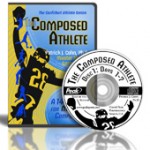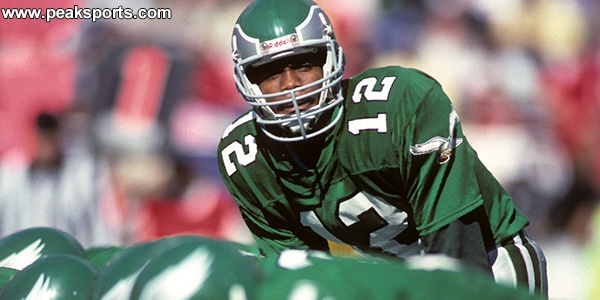Your Mental Toughness and Returning From an Injury
Coming back from athletic injury is an experience laden with intense emotions…
An injured athlete returning to competition will run through the gamut of both positive and negative emotions:
- Fear – Fear of re-injury is the most common emotion of injured athletes. The thoughts of re-injury or how the injured body part may hold up can be problematic for the returning athlete. Being overly cautious can lead to re-injury.
- Excitement – The exhilaration of being back to competition after a layoff is often intense. Being hyped up too much can set the stage for a disappointing return.
- Anxiety – Nervousness can interfere with a successful comeback and the ability to focus on just playing the game and focusing on the process.
- Impatience – Sometimes, the injured athlete will expect to return to their previous level of play even though the athlete may not have the optimal level conditioning or practice. This can be a big source of frustration for the injured athlete.
- Pressure – A much anticipated return to action and not wanting to let teammates and coaches down can drastically alter the injured athlete’s successful return to competition.
- Apprehension – Some injured athletes will be overly cautious and apprehensive due to the possibility of experiencing pain in the previously injured body part and potential long-term damage.
- Uncertainty – Questions of performing at the same level of play or regaining their status on the team can be a tremendous hurdle for some athletes.
- Happiness – After a long break and successful rehab, the extreme joy of being back is a great and accomplished positive emotion.
All emotions affect your recovery and performance.
Negative emotions can increase muscle tension and affect how you breathe.
If these emotions are not check in check, not only can your performance suffer but there is an increased chance of re-injury.
Dealing with emotions is just what Philadelphia Eagles quarterback Carson Wentz needed to do in his return to competition after a nine month recovery from two torn knee ligaments.
Not only was the rehab physical and mentally taxing, Wentz admitted that his return to action will filled with intense emotions.
WENTZ: “It’s been a long time coming. It’s been quite the grind of an offseason. There’s a lot of excitement, a lot of built-up anxiety over when it was going to be that time, and almost relief finally being cleared to get back out there… There’s going to be a lot of emotions going on. But once the game starts, it’s just a football game.”
In the end, Wentz was able to manage his pregame and game-time emotions to lead the Eagles on a game-winning, 17-play drive that consumed 11 minutes, 18 seconds in the fourth quarter.
To manage emotions after an injury, realize that your first competition back from injury is no different than any other game.
By normalizing the game, you can focus on the process of playing which minimizes muscle tension and mental clutter and allows you to play to make a successful return to action.
Emotions and Returning From an Injury:
Controlling negative emotions is key.
To keep your emotions in check, focus on your pregame routine that you followed prior to your injury.
Let go of any expectations about performing great when you return.
Build your confidence one day at a time. You won’t have superior confidence right out of the gate. Be patient and earn your confidence one day at a time!
Related Sports Psychology Articles
- Mental Toughness as an Underdog
- Mental Toughness Tips for Athletes
- The Importance of Mental Toughness
*Subscribe to The Sports Psychology Podcast on iTunes
*Subscribe to The Sports Psychology Podcast on Spotify
Download a free sports psychology report to improve your mental game!
Learn more about our one-on-one mental game coaching.
The Composed Athlete

“The Composed Athlete” is presented on 80-minute Audio Programs with a 70-page step-by-step workbook that guides you through the program each day. It’s a complete system for conditioning your mind to have maximum composure in competition.
“The Composed Athlete” was developed for any level coach, parent, or junior to professional athlete who wants to improve performance and gain a competitive edge. It does not matter if you are a fledgling junior athlete; or a seasoned professional, plagued with distractions; or you just wanting to learn how to improve your composure…

